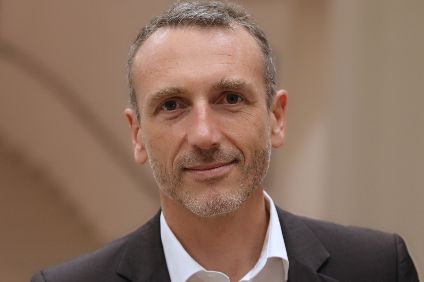
Danone is to open up its archive of ferment strains, a collection the yogurt giant describes as its “biggest treasure”, in a bid to encourage research in developing healthier and more sustainable food.
The Activia maker is to give access to its 1,800 strains, a move the company said could lead to a greater range of fermented foods on the market, as well as having benefits in agriculture, including regenerating soil and mitigating methane emissions from cows.

Discover B2B Marketing That Performs
Combine business intelligence and editorial excellence to reach engaged professionals across 36 leading media platforms.
“Probably one of the most important treasures that we’ve been assembling as a company is the collection of strains, ferments, bacteria, that we have developed. We’re only using a fraction of them today. We know, talking to a number of people like you in this room – scientists, farmers, innovators, start-ups – that they could have many more applications than the ones we’ve found in our products,” Danone chairman and CEO Emmanuel Faber said today (8 May) at a summit convened in Barcelona by the French company to mark its 100th anniversary.
“We will open this collection starting today for research that can be about how can we improve the nutritional value of foods through fermentation, through the strains. It will be applicable for non-food as well. We know that fermentation can reduce the methane emissions of cow ruminations,” Faber explained. He also said research into the strains could help with “enhancing and enabling soil restoration, which is so important for the future of agriculture and therefore for food”.
In his keynote speech at the summit, Faber underlined his belief in the importance of regenerative agriculture, a practice attracting growing interest in parts of the food industry as a way of improving biodiversity and drawing down climate-damaging levels of atmospheric CO2.
“Regenerative agriculture is a fundamental part of the solutions tomorrow,” Faber said. He pointed to Danone’s decision to only use non-GMO feed in the production of dairy products sold under its three main brands in the US – Dannon, Oikos and Danimals. “In two years, we are transitioning US$1bn out of the GMO system in the US,” he said.

US Tariffs are shifting - will you react or anticipate?
Don’t let policy changes catch you off guard. Stay proactive with real-time data and expert analysis.
By GlobalDataTwo years ago, Faber and Danone declared an “Alimentation Revolution” and urged the food industry to sign up to a “movement” that aimed to “nurture the adoption of healthier and more sustainable eating and drinking habits”.
Speaking at today’s summit in Barcelona, Faber again reiterated the success of the international food system in areas like tackling hunger but also underlined how it has had significant negative impacts on health and on the planet’s resources.
He warned that consumers were “turning away” from larger food companies. “We need to not be seen only as part of the problem, which is a collective problem, but part of the solution, which has to mean collective solutions,” Faber said, insisting big business can play a role in producing healthier and more sustainable products.
“The people of this planet do not need fundamentally companies like ours. I’m sure they can invent many things by themselves – and I think that’s what they are doing. Many are turning away from large brands, large retail shops and finding other ways,” Faber said.
“Yet that’s not the end of our world. It cannot be the end of the large brands, the ones that have been built with the trust and confidence of millions of people – employees, stakeholders, consumers – around the world for so many years.
“Being 100 years old as a company, we can feel that [the past] will slow us down and drag us back. Yes, this is probably true – and actually certainly true – but … there is a lot that the smaller initiatives don’t have yet that we have. We have the resilience of 100 years of change at scale, of cultural adaptability, they are also huge levers to contribute to the solutions of tomorrow.”





